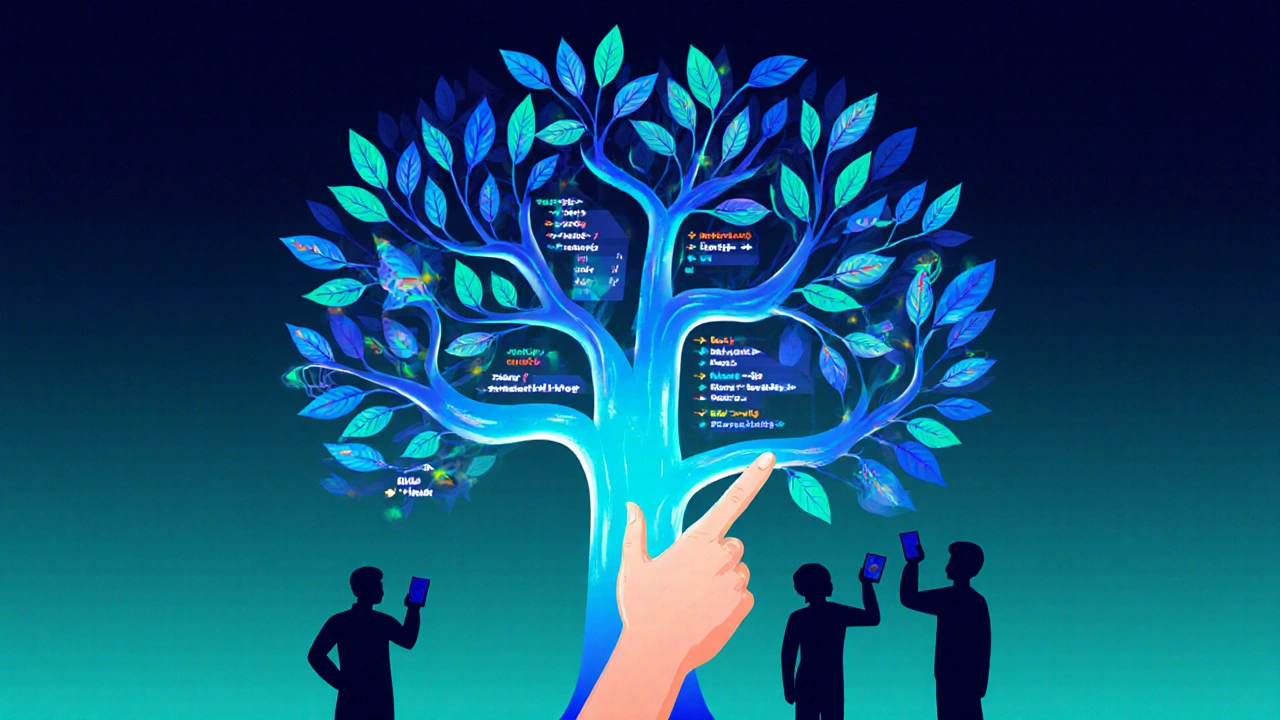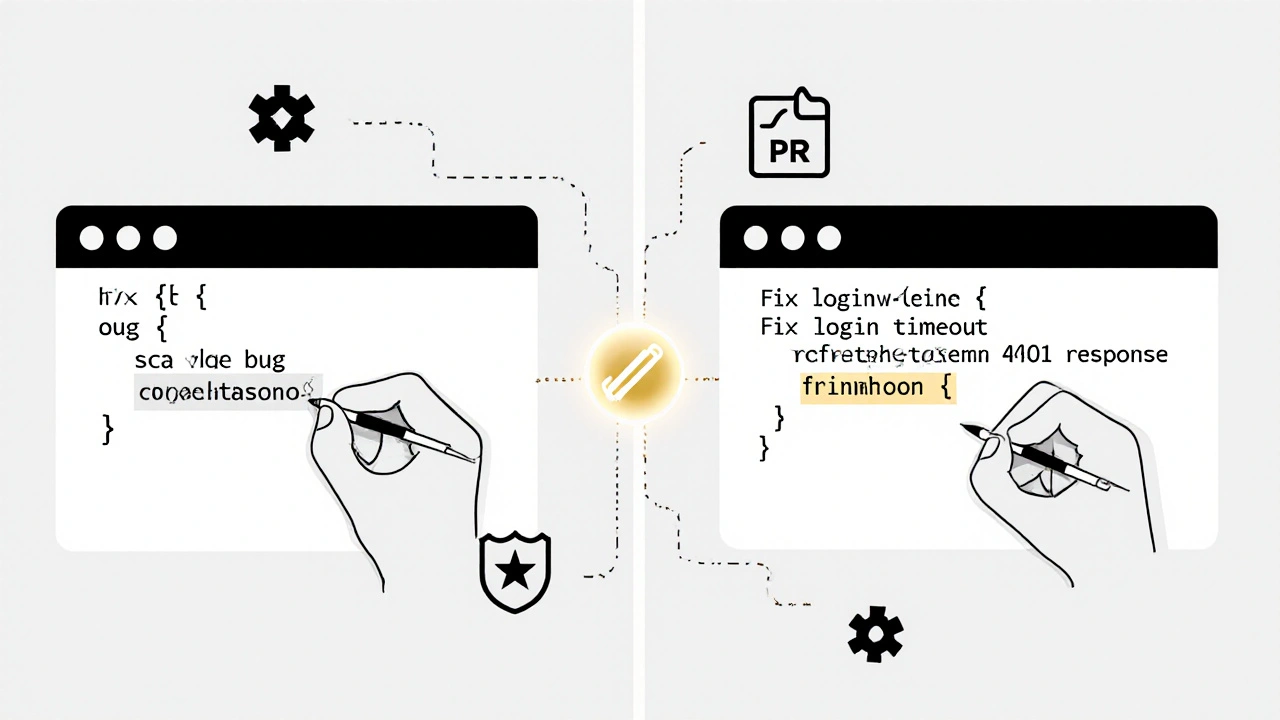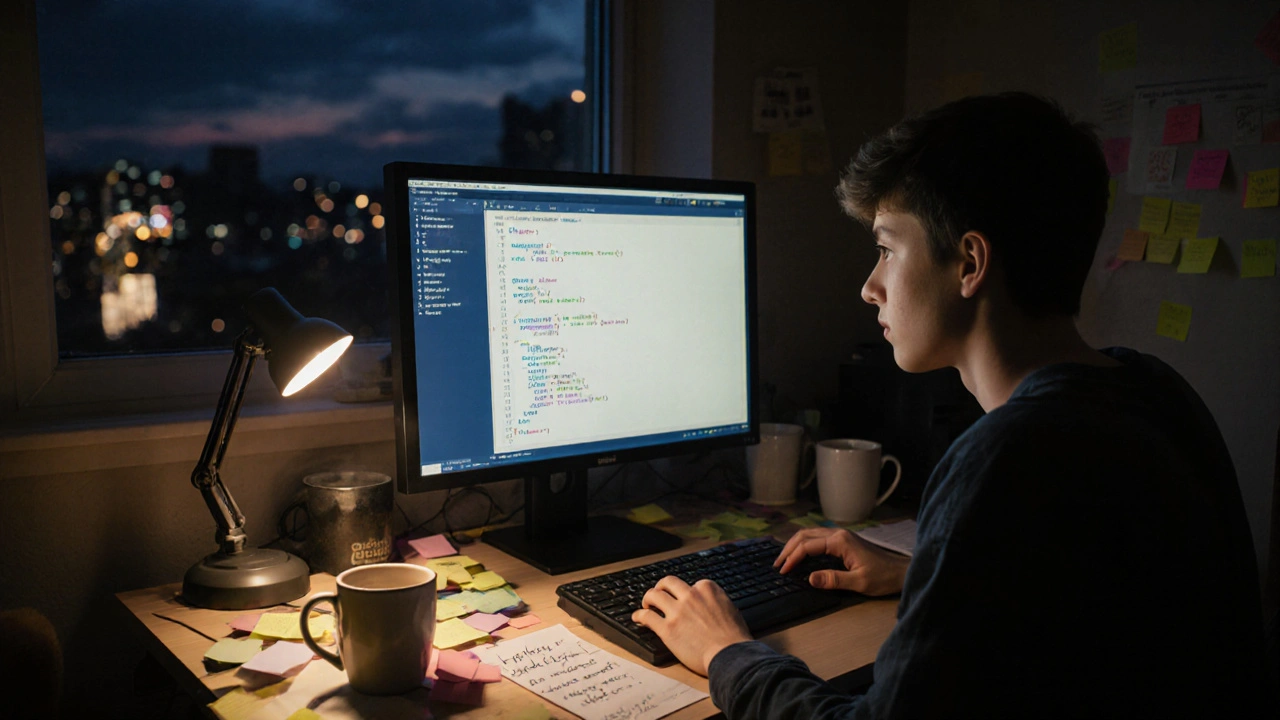Coding Progress Estimator
The article explains that consistency beats intensity. This tool helps you estimate how long it will take to reach a solid intermediate level based on your weekly coding hours.
Estimated Time to Intermediate Level
Key Insight from the Article
"Consistency beats intensity. You don't need to code eight hours a day. You need to code 20 minutes a day, every day."
Want to get better at coding? It’s not about spending more hours in front of a screen. It’s about how you spend them. Many people code for months and still feel stuck. They write the same kind of code over and over. They copy-paste solutions without understanding why they work. And then they wonder why they’re not progressing. The truth is, improving your coding skills isn’t a mystery. It’s a set of habits, practices, and mindsets that anyone can build - if they know where to start.
Stop Learning, Start Building
The biggest mistake beginners make is thinking they need to learn everything before they build anything. Tutorials are helpful, but they’re like watching cooking shows and thinking you can cook. You won’t get better until you chop your own onions, burn your first pot, and fix your own mistakes.
Start small. Build a to-do list app. Then add due dates. Then let users share lists. Then make it work offline. Each step forces you to solve real problems. You’ll hit walls - that’s good. That’s where real learning happens. When you Google an error message and read the documentation because you have to, you remember it. When you fix a bug by yourself, you learn more than from ten YouTube videos.
Projects don’t need to be grand. A weather widget that pulls data from a public API. A habit tracker that sends you a daily email. A script that organizes your downloads folder. These are real code. Real problems. Real growth.
Read Code Like You Read Books
Good coders don’t just write code - they read it. A lot of it. Open-source projects on GitHub are goldmines. Pick a project you use or admire - maybe a popular library like React, or a simple tool like a Markdown parser. Don’t just look at the code. Study it.
Ask yourself: Why did they structure it this way? Why is this function so short? Why is that variable named config and not settings? Look at the commit history. See how the code evolved. Notice where comments were added later - those are the pain points others struggled with.
Try to refactor one small part of it. Change the variable names. Rewrite a function to be more readable. Then run the tests. If they pass, you’ve learned something. If they break, you’ve learned even more.
Reading code teaches you patterns. It shows you how professionals solve problems. It’s the fastest way to move from writing code that works to writing code that’s clean, maintainable, and scalable.
Practice Deliberately, Not Just Often
Practicing the same thing over and over won’t make you better. It’ll just make you faster at doing the same thing. Deliberate practice means targeting your weaknesses.
Are you bad at debugging? Spend a week solving bugs without using a debugger. Print logs. Trace variables by hand. Use paper and pen. Force your brain to think step-by-step.
Do you struggle with algorithms? Pick one problem a day from LeetCode or HackerRank. Don’t rush to the solution. Spend 30 minutes trying it yourself. Then look at the answer. Don’t copy it - understand it. Then rewrite it from memory the next day.
Are you slow at writing tests? Build a small project and write 100% test coverage before writing any feature code. It’ll feel awkward at first. But you’ll start thinking about edge cases before you even write the main logic.
Deliberate practice is uncomfortable. It’s slow. But it’s the only way to break through plateaus.

Master One Language, Then Learn Others
There’s no magic language that makes you a better coder. But there’s a huge difference between knowing three languages at a surface level and mastering one deeply.
Choose one language - Python, JavaScript, or Go - and stick with it for six months. Learn its ecosystem. Know its standard library inside out. Understand its common patterns. Read its official documentation like a textbook.
Once you’ve built several projects in that language, start learning another. Not because you need to, but because you want to see how other languages solve the same problems differently.
For example, if you know JavaScript, try writing a simple web server in Python. Notice how Python handles routing without frameworks. Then try doing the same in Go. You’ll see how type systems, memory management, and concurrency work differently. That’s when you stop thinking in terms of syntax and start thinking in terms of design.
Mastering one language gives you a mental model. Learning others expands it.
Learn to Communicate Your Code
Coding isn’t just about telling a computer what to do. It’s about telling other humans - including your future self - what you meant to do.
Write clear commit messages. Not “fixed bug” but “Fix login timeout issue by refreshing token on 401 response.”
Use meaningful variable names. user is better than u. isValidEmail is better than check.
Comment the why, not the what. This line:
// loop through users and check if activeis useless. This one:
// Skip inactive users to avoid sending duplicate notifications (see ticket #124)is valuable.
Code reviews are your secret weapon. Ask someone to review your code. Don’t defend it. Ask: “Where did you get confused?” “What took you the longest to understand?” You’ll learn more from their questions than from any tutorial.
Build a Feedback Loop
Most people code in isolation. They write code, run it, and move on. That’s like practicing basketball alone in your garage. You might get better at shooting - but you’ll never learn how to play.
Get feedback. Join a local coding group. Attend meetups in Melbourne. Contribute to open-source projects. Even small fixes - fixing a typo in documentation, updating a dependency - count.
Use tools like CodeSandbox or Replit to share your code with others. Ask: “How would you improve this?” You’ll get suggestions you never thought of.
Keep a coding journal. Every week, write down:
- One thing you learned
- One bug that took too long to fix
- One piece of code you’re proud of
Review it every month. You’ll see patterns. You’ll notice what slows you down. And you’ll see how far you’ve come.

Consistency Beats Intensity
You don’t need to code eight hours a day. You need to code 20 minutes a day, every day.
One hour a week? That’s 52 hours a year. Enough to build three solid projects.
One hour a day? That’s 365 hours a year. Enough to go from beginner to job-ready.
It’s not about talent. It’s about showing up. Even when you’re tired. Even when you don’t feel like it. Even when you’re stuck.
Set a reminder. Block time in your calendar. Treat it like a doctor’s appointment. Skip it once? No big deal. Skip it twice? You’re back to square one.
The best coders aren’t the smartest. They’re the most consistent.
What to Avoid
Here’s what doesn’t work:
- Switching languages every month
- Following every new framework trend
- Buying courses but never finishing them
- Waiting for the “perfect” project idea
- Comparing yourself to senior developers on Twitter
These things feel productive. They’re not. They’re distractions.
Focus on depth, not breadth. On solving real problems, not collecting certificates. On writing code that others can use - not just code that runs.
Your Next Steps
Here’s what to do tomorrow:
- Open your code editor. Delete everything in your current project.
- Build something small - something you can finish in two hours.
- Push it to GitHub. Write a clear README.
- Share it with one person. Ask: “What would you change?”
That’s it. No fancy tools. No expensive courses. Just code. And feedback.
Improving your coding skills isn’t about memorizing syntax. It’s about becoming someone who solves problems - patiently, clearly, and consistently. Start small. Stay steady. Keep building.
How long does it take to get good at coding?
There’s no fixed timeline. Most people reach a solid intermediate level after 6-12 months of consistent practice - about 10-15 hours a week. But “good” isn’t a destination. It’s a habit. Even experienced developers keep learning. The key isn’t speed - it’s showing up every day, even for 20 minutes.
Should I learn multiple programming languages at once?
No. Learning two languages at the same time leads to confusion. You’ll mix up syntax, struggle with concepts, and end up not mastering either. Focus on one language until you can build three complete projects with it. Then learn a second one to see how different tools solve similar problems. Depth before breadth.
Is it necessary to know algorithms and data structures?
It depends on your goals. If you’re applying for big tech companies or working on performance-critical systems, yes - you need to understand arrays, hash tables, recursion, and basic sorting. But for most web development, UI work, or scripting, you can get by with practical knowledge. Learn the basics, but don’t get stuck in algorithmic purgatory. Use them when they matter, not just because you think you should.
What’s the best way to practice coding daily?
Build something tiny every day. It could be a script that renames your photos, a calculator app, or a weather checker. The goal isn’t the project - it’s the habit. Spend 20 minutes writing code, fixing bugs, or reading someone else’s code. Consistency builds muscle memory. Missing a day is fine. Missing two in a row? You’ve broken the habit.
Do I need a computer science degree to be a good coder?
No. Many of the best developers are self-taught. What matters is your ability to solve problems, write clean code, and learn independently. A degree helps with theory and access to networks, but it’s not required. Build a portfolio. Contribute to open source. Write about what you learn. That’s what employers actually care about.
How do I know if I’m making progress?
You’ll know when you stop Googling basic errors. When you can look at a bug and guess the cause before running the code. When you write code that someone else says is “easy to understand.” When you fix a problem faster than you did last time. Progress isn’t about how much you know - it’s about how quickly you solve problems and how little help you need.

